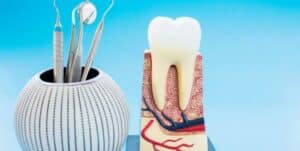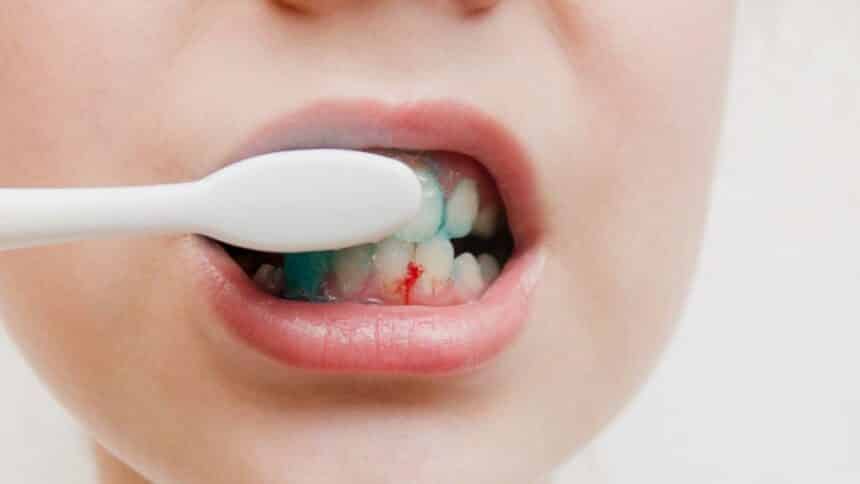If you notice blood in your mouth when brushing your teeth or chewing hard foods, do not underestimate it. Of course, it could be the result of mechanical damage to the tissues, but it could also be the beginning of a disease. Bleeding gums can be the first sign of inflammation, periodontitis, but also liver disease, diabetes and anaemia.
Bleeding gums - causes
The main cause of bleeding gums is poor oral hygiene. Lack of regular brushing and flossing causes plaque build-up, which over time turns into tartar. This appears not only on the visible part of the tooth, but also under the gum line forming subgingival tartar.
Therefore, to avoid the problem of bleeding gums, not only should you floss and brush your teeth at least twice a day, but you should also visit the dental surgery. Regular hygiene is essential. You can read exactly what it involves and how much it costs in our article "Dental hygiene in the UK'.
In the course of it, you will also learn what type of toothbrush and toothpaste is best for you and how to floss properly. Often, brushing too hard or using a hard-bristled toothbrush can lead to tissue irritation and bleeding.
Bleeding gums are also a sign of a deficiency in the vitamins and minerals, mainly vitamin C and K and iron (anaemia). But that's not all! They can also signify inflammation of other organs and even cirrhosis of the liver.

Unpleasant consequences: gingivitis and periodontitis
The aforementioned unremoved tartar can lead to gingivitis. The first signs are then bleeding gums during brushing, which over time become swollen. This is accompanied by an unpleasant odour from the mouth and, in advanced states, pain.
If you don't see a dentist then you have to reckon with the consequences - periodontitis. This, in turn, can lead to tooth loosening and even tooth loss. Therefore, it is better not to underestimate bleeding gums and to make an appointment as soon as possible.
And if you are already struggling with periodontitis be sure to get in touch with us, and in the meantime read our article from which you will learn not only what this disease is, but how it can be treated - "Modern periodontitis treatment in the UK with Vector Paro Pro".

What for bleeding gums?
The best way to deal with bleeding gums is prevention, i.e. proper oral hygiene and regular visits to the dentist. You can read about how to brush your teeth properly in our material of the same title - How do I brush my teeth properly?
But what if you are already struggling?
As we mentioned, make an appointment as soon as possible to a visit to the dentist. The doctor is able to determine what the cause of the bleeding gums is, recommend appropriate treatment or consult another specialist if required.
You can also help with home remedies. These include rinses made from herbs such as sage, thyme or chamomile.
If you have additional questions - contact us.
IMPORTANT ! Our surgery is open, However, the method of booking and the visit itself has changed. If you would like to find out more we invite you to read our article "Dental visit in the UK during the coronavirus pandemic„.

